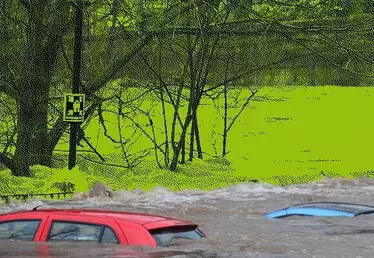

Hero banner custom title
Steering away from mass tourism
4 min
It is urgently necessary that we adopt a mindful approach to tourism that not only addresses the economy and the need to travel, but also the need to protect our planet.
Rémy Knafou, geographer and professor at the Paris 1 Panthéon-Sorbonne University, calls for a new approach to tourism, combining environmental awareness and meeting with others.
In your latest book, “Réinventer le tourisme. Sauver nos vacances sans détruire le monde” (Reinventing tourism. Saving our holidays without destroying the planet), you believe that it is not a question of putting an end to tourism, but of rethinking it entirely...
R.K. We cannot stop tourism. Discovering new cultures and meeting other people is an almost universal need. Moreover, many territories depend on tourism, economically speaking. But we need to change our approach, to get away from always wanting more. We must move towards a more reflexive tourism which takes into account the need to travel, the economy, but also the protection of the planet. To reach this goal, all States must play their part. In the Balearic Islands, for example, the government has decided to reduce the number of beds available to travellers, while relying on advertising to encourage a better spread of tourist numbers. It has also improved services offered to visitors in order to increase their spending.
In your opinion, what would be the priority measure to implement?
Prohibiting tourism in certain areas is necessary in order to safeguard them. The Antarctic, for example, is a place where cruise ship or overflight tourism by rich visitors, coming from very far away, is on the rise. Yet there are no local economic benefits in these often sparsely populated natural areas. This would be very beneficial for the planet. Several types of “zoning” with different levels of prohibition should be further developed, such as national parks.
“We must move towards a more reflexive tourism which takes into account the need to travel, the economy, but also the protection of the planet.”
Should travelling, which is often very polluting, also be reconsidered?
Why not cut airlines when there is an equivalent alternative by train, as is the case in France? Let's also hope that the weekend abroad craze will die down, thanks to an airline pricing policy. Airlines could very well apply discouraging fares to short stays and, on the contrary, encourage longer ones. Taxes should also be increased on flights, especially long-haul flights. Regarding cruises, stopover cities should negotiate a reduction in the number of stopovers, all the while improving the tourist experience they offer - and thus managing a higher income. Again, quality over quantity.
How can each of us play our part?
It is essential that each of us be more reflective in the way we travel. We must become more involved and informed in order to better measure the impact of our travel and tourism behaviour... and be less dependent on tour operators - which are very good at selling misleading packages, such as the concept of “sustainable tourism”, even though the destination is thousands of kilometres away, by plane.
Share it:













